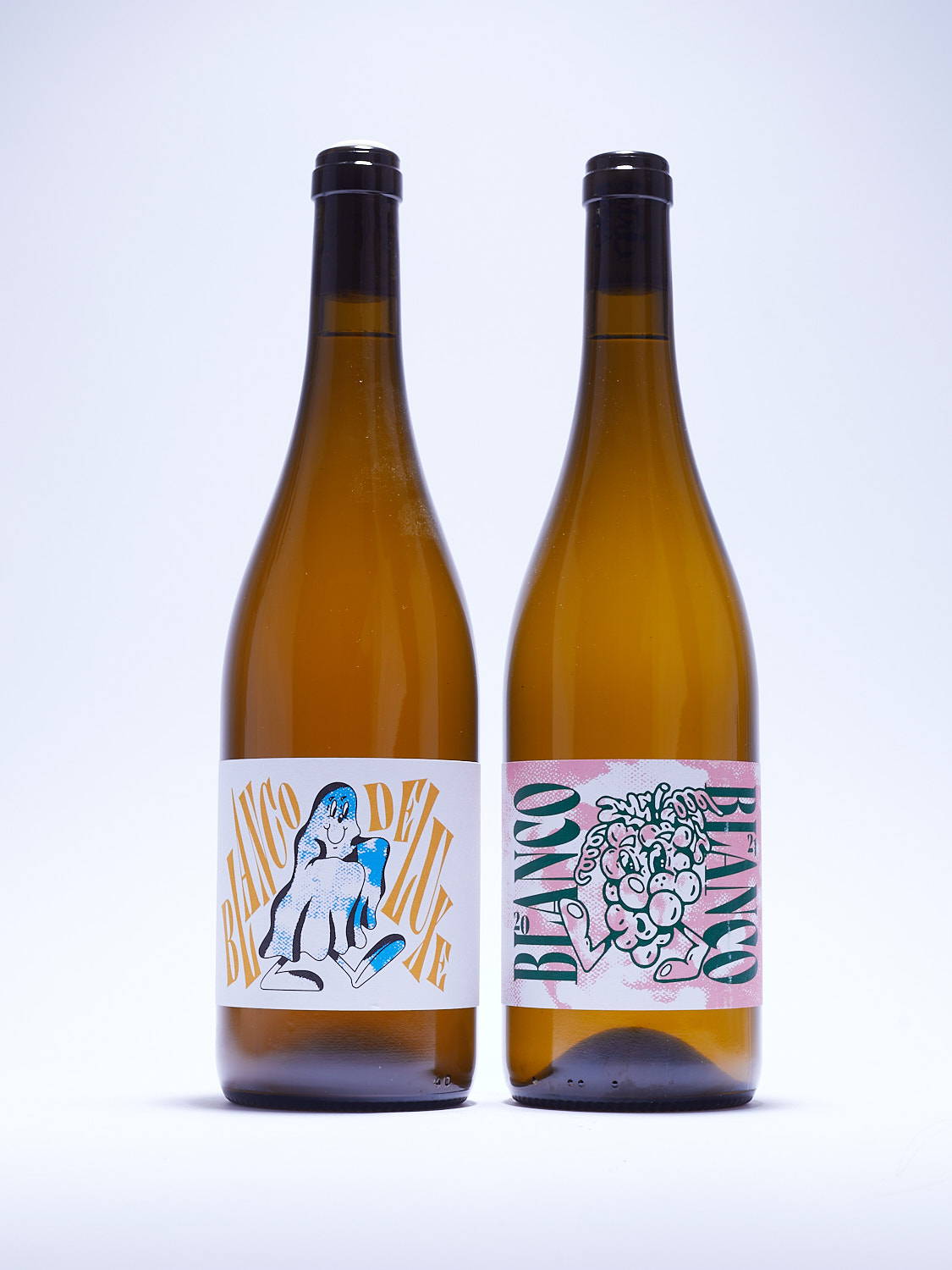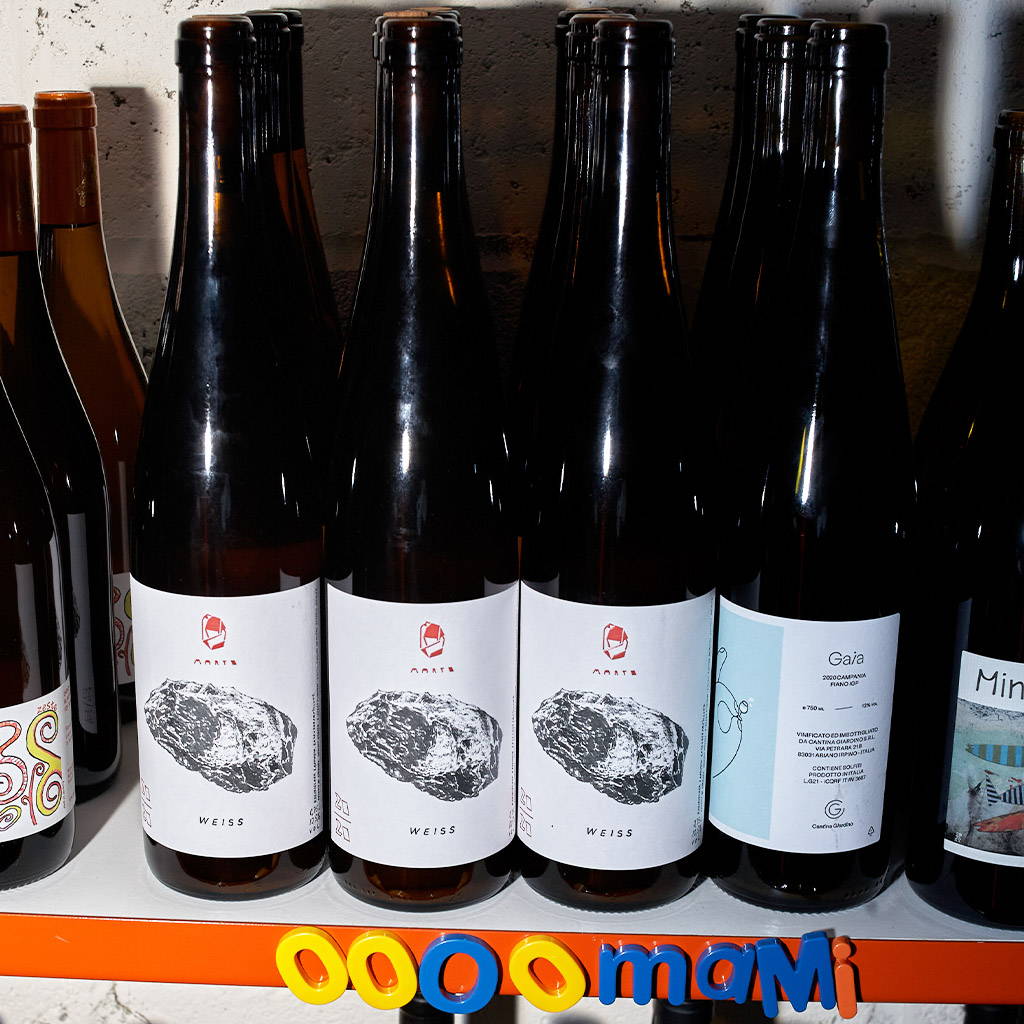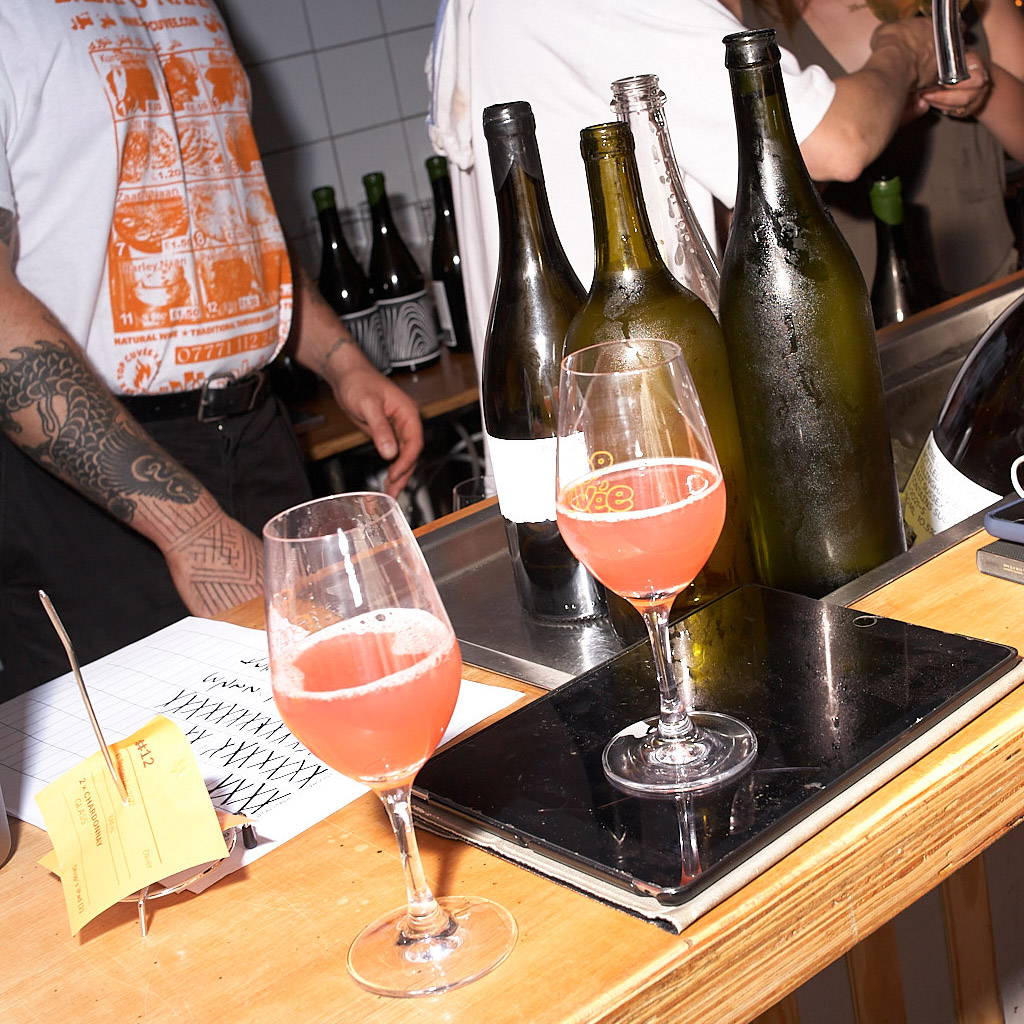Orange wines are having a real moment of their own right now, but despite their popularity a lot of people still ask us "What is Orange Wine?"

We're about to tell you everything you wanted to know about Orange Wine but were too shy to ask!
Also known as skin contact wine, amber wine or macerated white, Orange Wine is simply - "a white wine made the same way as a red wine."
So, that’s white grapes, squashed and left in contact with their skins where the juice takes on flavour and colour characteristics during this maceration period. It’s a common misconception that orange wine is made from oranges!
🍊 Myth Busted:
Orange wine is not made from Oranges!

Orange wine is popular within the Natural Wine movement where many producers opt for modern, colourful labels
Not many people know that the colour in red wines actually come from pigments in the skins (the juice is clear) that are extracted through maceration, along with other things like tannins, flavour compounds and aromatics.
Think about brewing a cup of tea, the longer you leave the tea bag in contact with the water the stronger your brew; the same applies when making wine. Not only does the infusion take on more colour but also more flavour is extracted through extended maceration.
This amount of extraction can also be affected by how much the skins are agitated or stirred during the maceration.
Longer Maceration + More Agitation = More Flavour & Colour
Pro Tip: Maceration = Skin Contact
Now, enter the winemaker. Let’s look at what might guide their decisions when deciding to make an Orange Wine...
The process of making Orange Wine is ancient, but the reinvigoration of this process has only resurfaced in the last couple of decades. Many modern-day winemakers look as far back as 5,000 years in Caucasus (modern-day Georgia) where wines fermented in large subterranean vessels called Qvevri (“Kev-ree”) that were originally closed with stones and sealed with beeswax.
To be honest, you could even label Jesus Christ himself as an Orange Winemaker given that the vinification process of his era was largely reported to have been skin-contact practices.
Different varieties of white grapes have different colour intensity, tannin levels and skin thickness which when combined with the decision of how long to leave the juice in contact with the skin decide on how much of these characters you will extract into the finished wine.


Most skin-contact winemakers utilize only local yeast (no inoculation) and minimal or no sulphites and are typically lower in alcohol and have a lighter body.
We love orange wines because they are versatile, diverse and always sure to please someone. They can be delicate and fruity, oxidized (nutty or stewed fruit notes), sour, or solid and complex, depending on the time spent on the skins and the fermenting procedure.
Many people liken the flavour profile of some Orange Wines to that of craft beer which can act as a great gateway for people looking to expand their alcoholic horizons.
Orange Wine Food Pairings?
When it comes to what to eat with Orange wine you're blessed, it's extremely versatile - orange wines pair with a wide variety of foods all the way from lean beef to oily fish. A good rule of thumb is go for richer bolder dishes that stand up to the added body from the maceration, but if your orange wine is on the more elegant side don't be afraid to pair it with more delicate dishes.
Some of our favourite food pairings have been uncovered in an unlikely combinations with lightly macerated orange wines.
Remember, there are countless different varieties that are used to make Orange Wine so the beauty of these wines is that there is always something new to taste and there’s seriously a flavour for everyone.
We’ll call it “professional development”. Now go do your homework!

